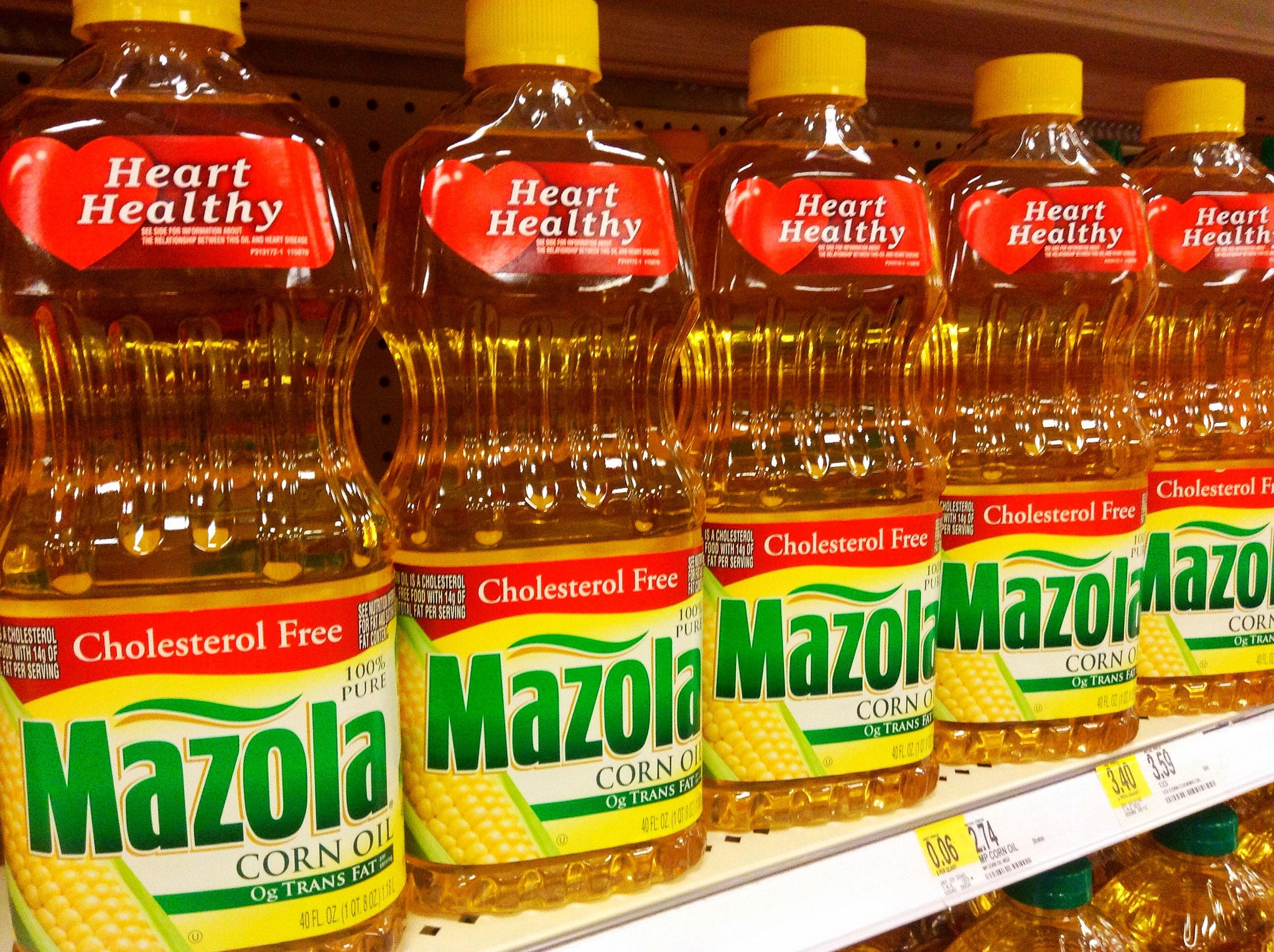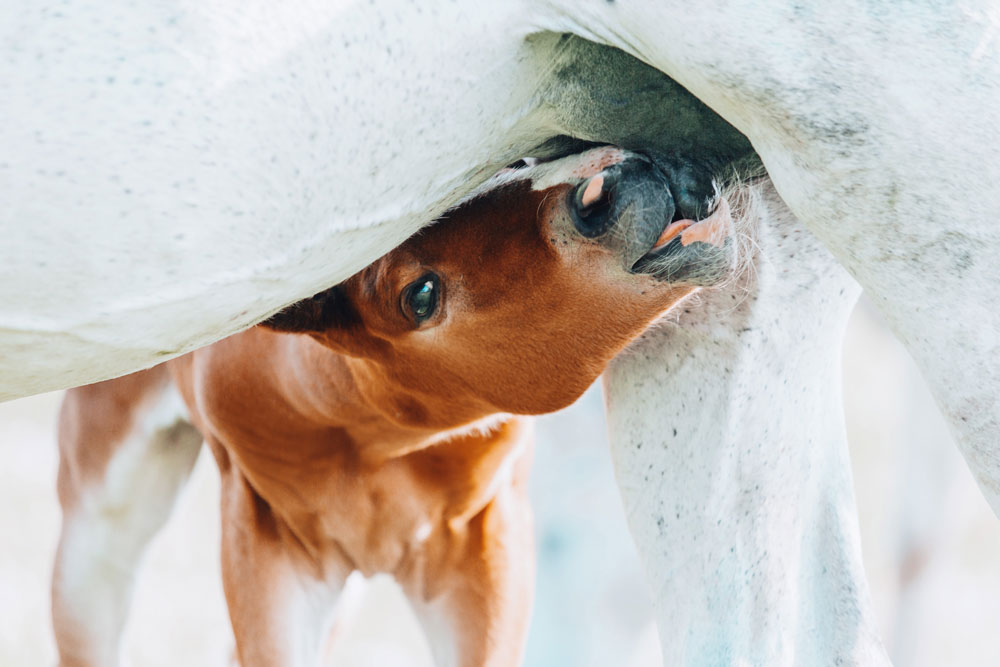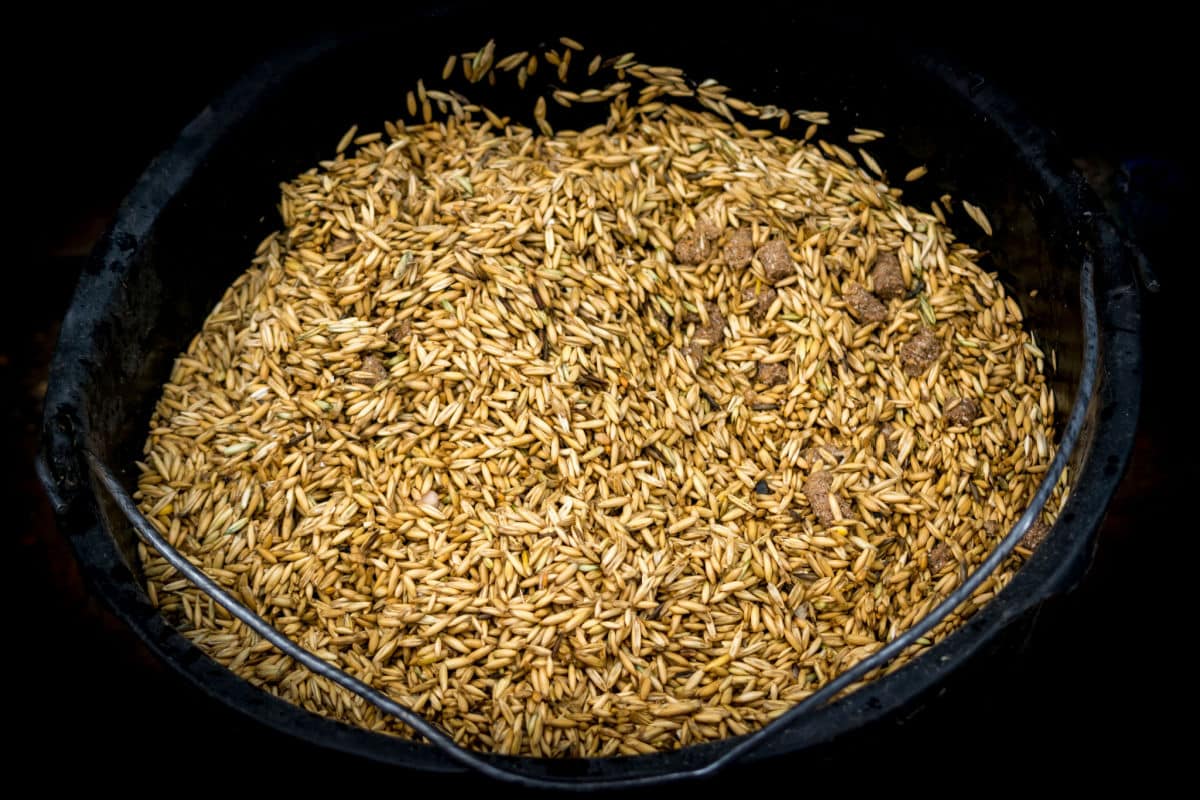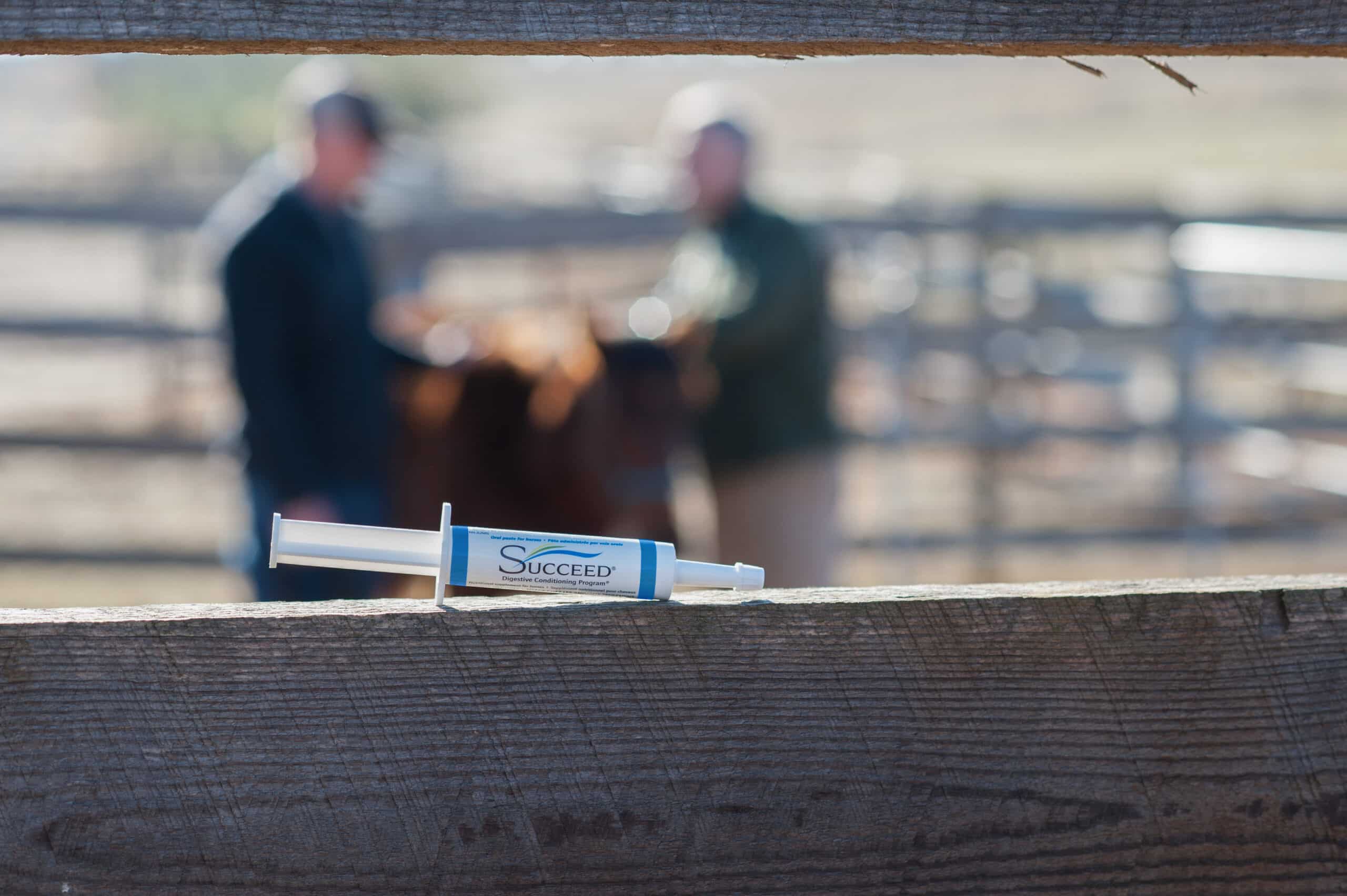Corn oil is a popular feed top dressing among many horse owners and managers. It’s inexpensive, readily available, and even the pickiest equine eater will gobble it right up. As far as vegetable oils go, studies have shown that corn oil is by far the horse’s preferred choice.
One of the many reasons equestrians supplement with corn oil is the belief that it can help prevent impactions in the gut. The theory is that if veterinarians dose horses with mineral oil to clear up impactions, adding oil into the diet regularly may keep it from happening in the first place.
While some equestrians may be convinced it’s helping their horses avoid colic, the reality is that corn oil does not work in any way that would prevent an impaction.
Here’s why, and what you should be doing instead.
Why Vets Use Mineral Oil During a Colic
When a horse colics and the vet suspects a possible impaction, the first thing he or she typically does is run a tube in through the horse’s nostril in order to pour mineral oil straight into the digestive tract.
There are three reasons that mineral oil is useful in the event of impaction colic:
- It coats the gut and prevents absorption, which keeps toxins from entering the bloodstream through damaged intestinal lining.
- It has a lubricating effect which can help the horse to pass a mass.
- It also functions as a laxative.
The real key, though, is that horses cannot digest mineral oil. There is no action in the intestine that allows for mineral oil to be broken down and absorbed. Thus, mineral oil can pass all the way through to the hindgut where it can have a chance to work throughout the GI tract.
Why Corn Oil Doesn’t Work the Same Way
Unlike mineral oil, corn and other vegetable oils are extremely digestible by horses. That’s one reason they provide an easy way to add fats to the diet and can be effective for promoting weight gain and a shinier hair coat. When fed in appropriate amounts, corn oil won’t upset nutritional balance and will be 85-90 percent absorbed in the small intestine.
But the digestibility of corn oil is exactly why it isn’t effective for preventing impactions. Corn oil is absorbed through the small intestine so very little, if any, reaches the hindgut. And even if it could, it doesn’t have the same lubricating or laxative effects that mineral oil does.
Moreover, because corn oil is almost entirely Omega-6 fatty acids which are associated with inflammation, you may be doing more harm than good by feeding a horse corn oil. (We’ll talk more about the nutritional benefits and drawbacks of corn oil in a future blog post.)
Actual Methods for Avoiding Impaction
The first step in preventing impactions in horses is to know what causes them in the first place. (Impaction colic is a particular concern in winter. Here are four reasons impactions tend to increase in colder months.)
While some impactions are unavoidable such as in the case of cancer, or accidental like ingesting a foreign object, most can be averted through good feeding management. Here are some things you can do to reduce your horse’s risk for impactions.
Do:
- Provide constant access to water. Give your horse clean water (and keep it from freezing), and provide electrolytes and a mineral block to help encourage him to drink. Be sure to monitor your horse’s hydration level to ensure he is drinking enough; don’t just count empty buckets.
- Maintain an exercise routine as much as you can.
- If your paddocks are in decent shape, turn out the horse when possible and provide accessible water. If not, seek an alternative, like a few hours in an indoor or outdoor ring, where the footing will likely be better. The extra movement will help kick-start his digestive system (not to mention reduce boredom).
Don’t:
- Don’t feed too much grain. Feed more of a good quality hay if you need an increase in calories, as hay produces a constant, long-lasting source of heat, helps promote good digestive health, and is generally accompanied by a good intake of water.
- Don’t make sudden changes in diet — slowly adjust turnout and feed between fall and winter.
- Don’t forget to follow and maintain your parasite prevention program. Parasites are often involved with colic and dehydration.
We recommend ditching the corn oil in favor of smart management. At best, feeding corn oil is wasted effort (and money). Worse, adding corn oil to the diet may have some negative results.
Subscribe to the SUCCEED blog for future Monday Myths to learn why corn oil isn’t a great option for encouraging weight gain or shine.
Photo by Mike Mozart licensed via CC2.0.




